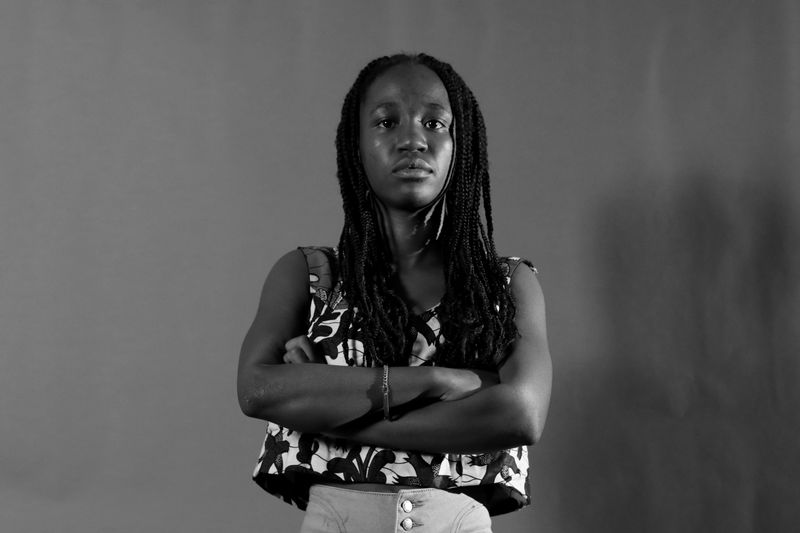We Are America
Returning to America
By Celia

Lowell High School, Lowell, Massachusetts
All my life I dreamt of coming to America for a better life and the opportunity for a great education. More than one hundred and fifty years ago my ancestors on my mother’s side fled America for a better life and freedom. So in some way, you can say I am returning to America.
I am from Liberia, a country on the west coast of Africa founded by freed American slaves. I recently learned from my 92 year old great-grandmother that her grandparents were freed slaves who went to Liberia with their children. One of those children was her father. I am also a daughter descendant from the Bassa tribe, some of the first inhabitants of Liberia, and the Kpelle tribe, the country’s largest tribe.
When I came to America at the age of 12, I didn’t know that being an African American woman means I have come to live in a country where my skin color makes me a criminal. Just after we arrived, before I started school, my mother said to me, “you are a Black woman so even though police are supposed to protect you, you have to fear them. When they see you, they see the color of your skin and that makes you a target.” I did not believe her, I believed police were trained to protect us.
In my new middle school, kids said and did awful things to me. They made fun of the way I looked and how I spoke. They wrote disgusting letters and put them on my desk and in my locker. It was the first time I experienced racism and bullying. I hated going to school. I remembered one time I told a school leader, but he accused me of writing the letters and because of that I just never spoke up again.
I didn’t understand how a simple thing as a person’s skin color could define a person. In sixth grade, during my first year in the U.S., I read the U.S. Declaration of Independence: "All men are created equal... with certain unalienable rights...that among these are Life, Liberty and the pursuit of Happiness." Why then were my people being treated less than others? Was it because the founders didn’t include black people as equal?
During my freshman year of high school, there was a big fight near my school between students. The police arrived. They seemed to assume that the black kids started the fight. I watched my black friends, who weren't even part of the fight, get pepper sprayed and pushed to the ground.
I leave my house not knowing if I am going to come back. I am so tired of worrying if I would get to see my mother again every time she drives to the supermarket because she is a Black woman. I am tired of being afraid to drive. I refused to get a license because getting a driver’s license leads to driving, leading to Black people being murdered by the police. I am scared that I will end up on the news like Daunte Wright who was murdered by a cop in Minnesota. Sometimes I am afraid of sleeping, I am reminded of Breonna Taylor murdered while in bed. I am afraid of going outside. It makes me feel anxious like I can’t breathe because every time a police car drives by I am reminded that as a Black woman, I can be killed, raped, beaten and this justice system wouldn’t care because I am a Black woman.
This past summer, after George Floyd’s murder, my little sister asked me, “why are people trying to justify the police officer’s actions?” She was seven, I was seventeen. I sat her down and I told her about how our people have been targeted since the time our ancestors were enslaved in America. It was the hardest thing I ever did. Seeing the sadness in my sister's eyes when I told her that some people would hate her for no reason other than for the color of her skin broke me into pieces. When I was her age in Liberia, I never had to worry about racism. But my family has returned to America, and I know one day she will experience racism and I won’t be able to protect her.
© Celia. All rights reserved. If you are interested in quoting this story, contact the national team and we can put you in touch with the author’s teacher.